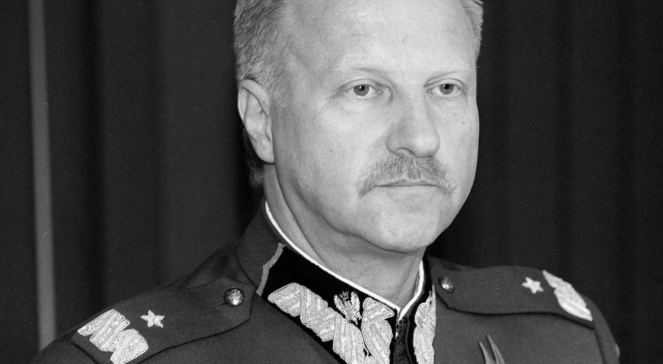
Sławomir Petelicki, 1946-2012. Photo: Archive/PAP/Radek Pietruszka
Police spokesman Maciej Karczynski informed that Petelicki’s body was found by his wife in the garage of his Warsaw apartment on Saturday. He was 65. Primary investigations point to suicide as the cause of death.
It is expected that prosecutors will decide on an investigation into Petelicki’s death on Monday.
After examining the scene of the incident, “the body of General [Petelicki] has been taken to a forensic laboratory, although a post-mortem will probably take place on Monday,” prosecutor Katarzyna Calow-Jaszewska from the Warsaw District Prosecution told the PAP news agency.
“He was a tough man, a brilliant soldier and commander,” Colonel Krzysztof Przepiorka, head of the Foundation of Former GROM Special Forces Soldiers, told Polish Radio.
Former soldier and currently a military expert, Janusz Walczak told Polish Radio that Petelicki was a distinct and controversial figure. “Let us remember that these were hard times when he started to form GROM,” he said.
“He was a product of the old system, and in the new situation [following the collapse of communism] he managed to form something linked to the secret services,” Walczak stated, adding that Petelicki was a charismatic and decided individual.
“Whenever [Petelicki] did something, he did it with determination […], taking the consequences upon himself,” Walczak underlined.
Colourful career
Slawomir Petelicki was born in 1946, and graduated from the Law Faculty of Warsaw University in 1969, joining the Ministry of Internal Affairs the same year.
During the years of communist rule in Poland, Petelicki was an agent of the security services, as well as diplomat, taking up posts as a military advisor at the Polish Consulate in New York in the 1970s and head of intelligence at the Polish Embassy in Stockholm during the 1980s. He also served in China and North Vietnam.
After the fall of communism, Slawomir Petelicki was asked by Prime Minister Tadeusz Mazowiecki to form a special forces unit for rescue and anti-terrorist operations, which took the acronym ‘GROM’ (meaning ‘thunder’ in Polish). He became the unit’s first commander.
In 1996 Petelicki was advisor to leftist Prime Minister Wlodzimierz Cimosiewicz on organised crime, and was promoted to brigadier general by then President Aleksander Kwasniewski two years later.
After retiring from the Armed Services, Petelicki engaged in business, and worked for consultants Ernst & Young, among others.
Slawomir Petelicki was awarded with many medals, including the Commander’s Cross of the order of Polonia Restituta, which he gained in 1995. He also held a number of foreign honours, such as the US Army Commendation Medal and the Legion of Merit.
Following the Smolensk catastrophe which killed President Lech Kaczynski and 95 others in April 2010, Petelicki was critical of the government for not calling upon NATO for help in the investigation of the crash.
Petelicki believed the flight to Smolensk had military status, and should have been treated accordingly. As such, the founder of GROM took his seat in an independent commission to investigate the causes of the Smolensk disaster. (jb)

Police at the scene of Petelicki's death in Warsaw's Mokotów district, Saturday, 16.06.2012. Photo: PAP/Jacek Turczyk